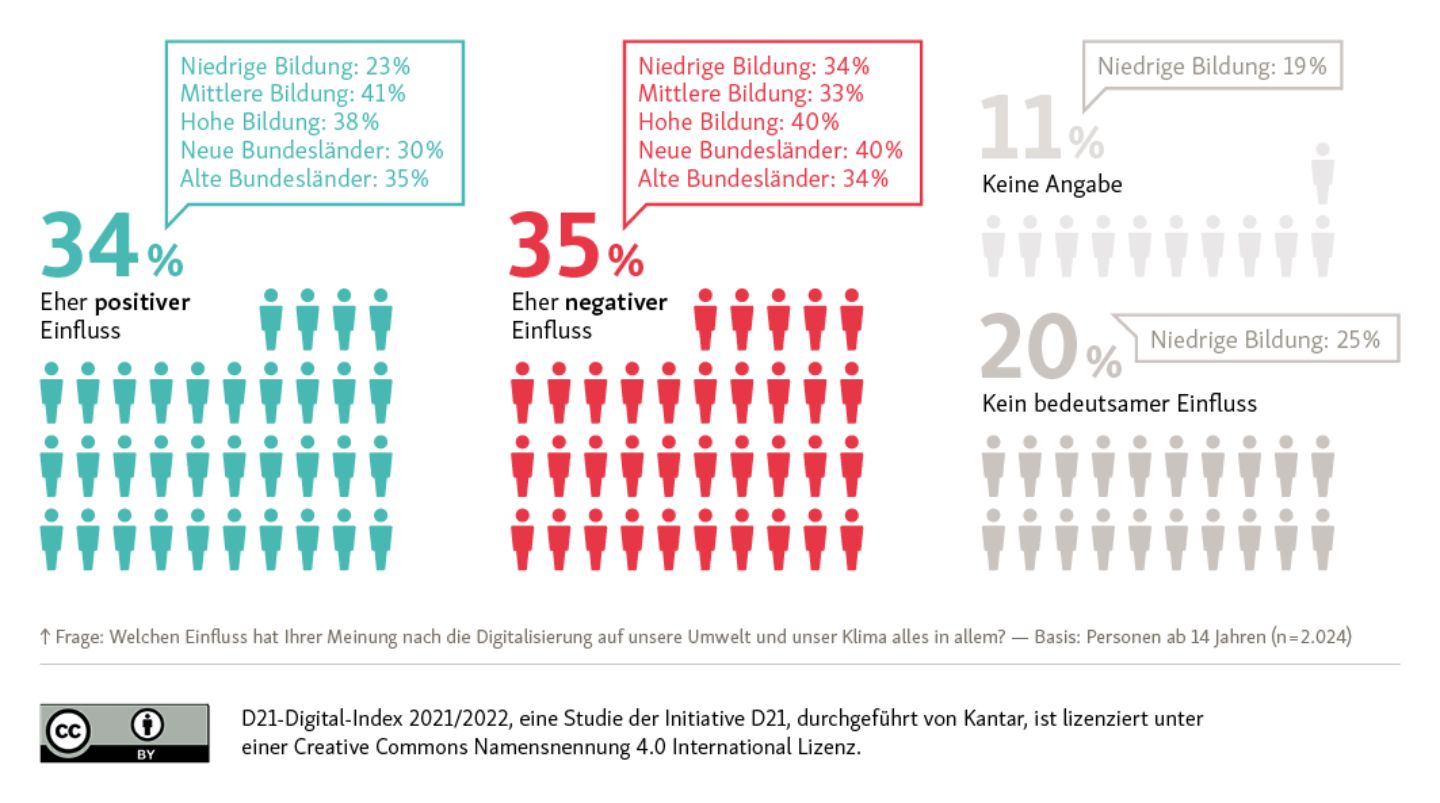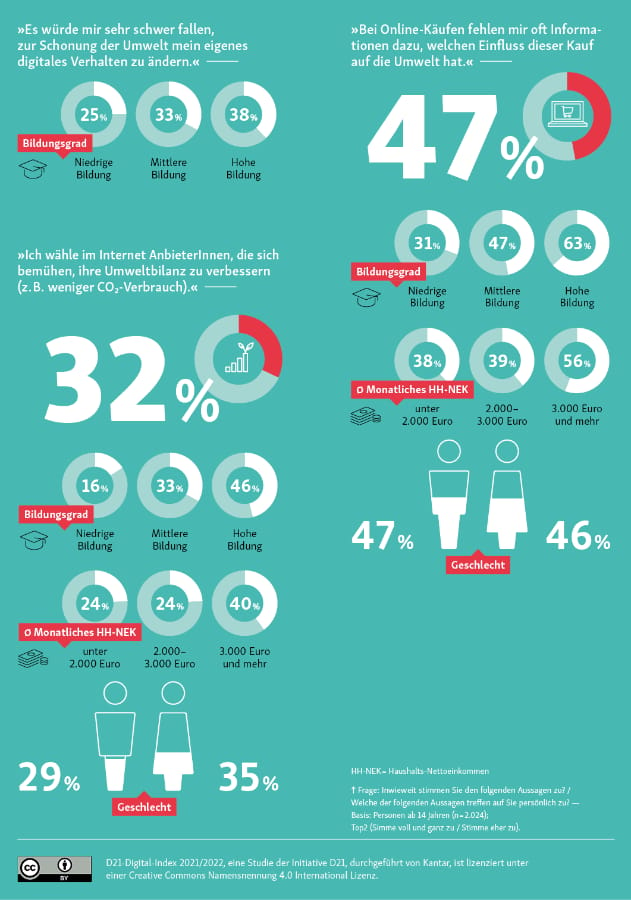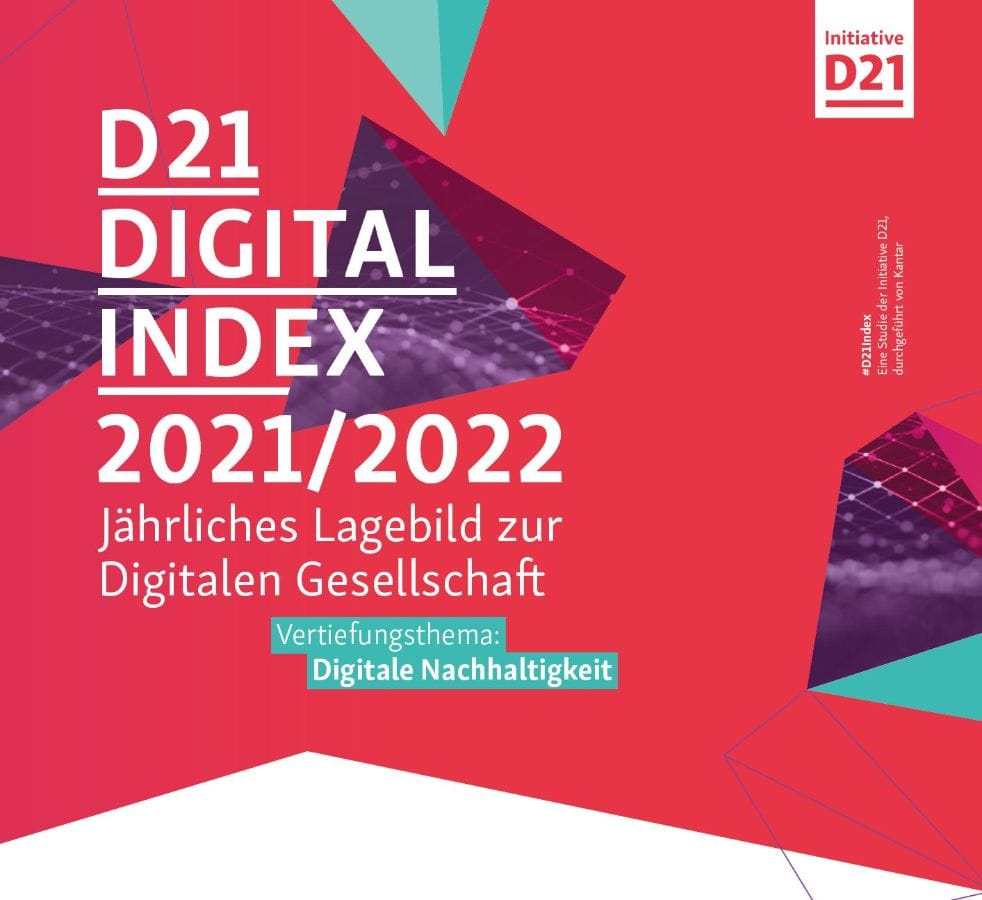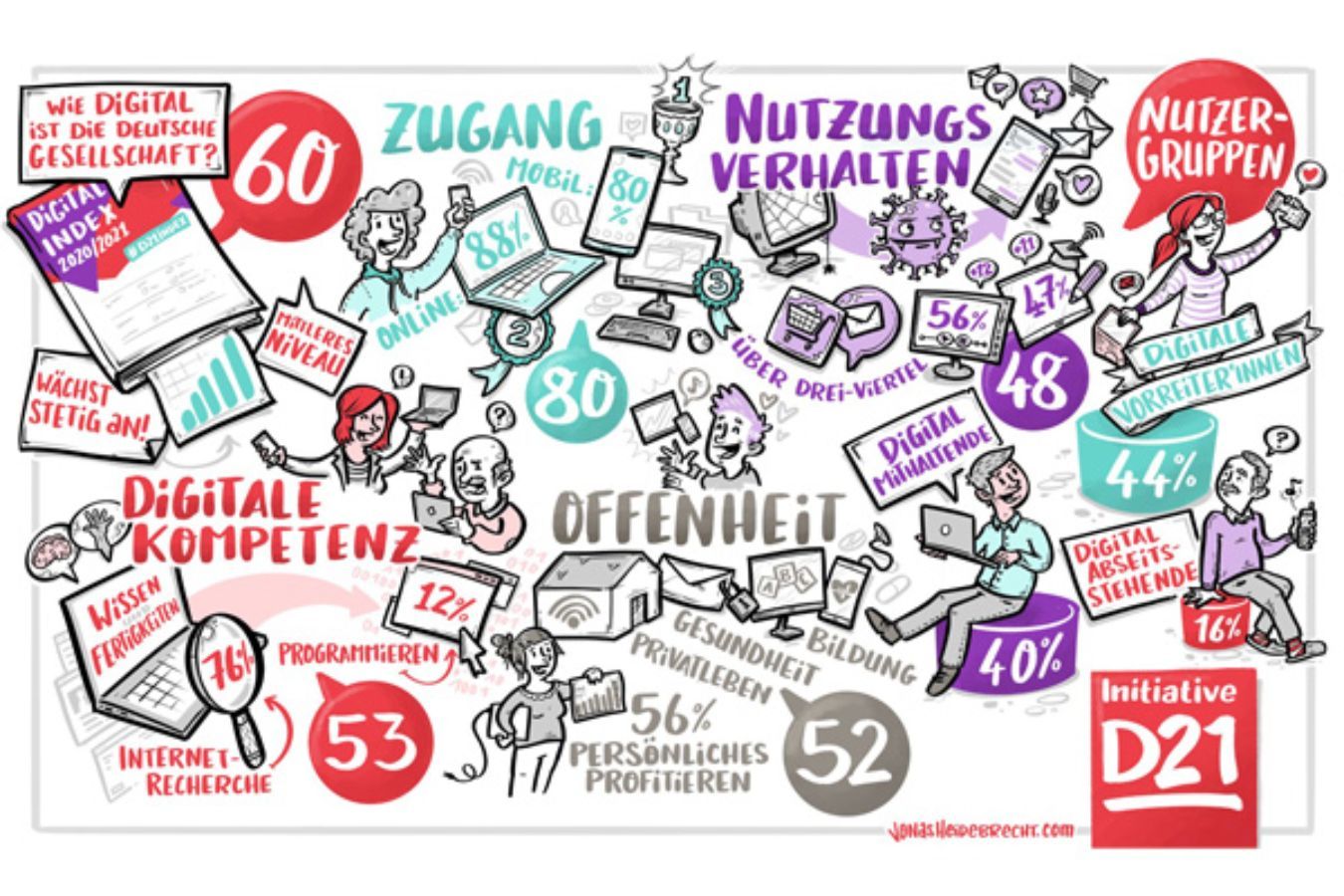
CHG-MERIDIAN has a long-standing partnership with the publisher of the Germany-wide study, Initiative D21. The shared goal is to promote the digital transformation in society and to spark and shape the necessary debates. The Managing Director of D21, Lena-Sophie Müller, has assessed and commented on the results of the latest survey for us. In her conclusion, she says that “sustainability is the greatest challenge of our time, and it cannot be achieved without digitalization. The fact that digitalization itself must be sustainable does not make the task any easier.”
MS. MÜLLER, THE LATEST D21 DIGITAL INDEX WAS THE FIRST TO INCLUDE A QUESTION ABOUT THE RELATIONSHIP BETWEEN DIGITALIZATION AND SUSTAINABILITY. WHAT IS THE REASON BEHIND THIS?
Sustainability, specifically environmental sustainability, is the greatest challenge facing the world this decade. And that has a huge impact on society. Digitalization has a profound influence on sustainability in both a positive and a negative sense – in the case of the latter, specifically the consumption of energy and resources. So it was only logical to ask about the correlation between the two topics.

WHAT KEY INSIGHTS HAVE YOU GAINED?
The complexity of the matter is reflected in the responses. There is no clear trend in the D21 Digital Index as to whether people view digitalization’s influence on sustainability as good or bad. For the majority, it is difficult to gauge the impact that digitalization has on the environment, and a degree of uncertainty in this regard is clearly visible. In my view, this calls for clearly presented information, otherwise there will be a problem with acceptance of the measures that inevitably have to be put in place.

Sustainability needs education. The results show: the respondents would like to know more concretely what consequences their digital actions have on the environment. (Source: D21 Digital Index 2021/2022)
What Does Society Need, What Information Do People Lack?
47 percent of respondents stated that they lack key decision-making criteria when shopping online: where do the products come from? What is their impact on the environment? We are used to seeing organic certifications, safety marks, and special seals in other spheres. This could be expanded to digital products, as the task here is the same, namely to give complex evaluation systems a simple structure.
In Your View, What Else Can Be Done To Promote Sustainable Behavior?
The range of possible measures is broad and touches on many aspects. The circular economy, for example, is a very important factor. Initiatives promoting the right to repair are sending out a strong signal in this respect. Furthermore, it should be made as easy as possible for consumers to hand back old and non-functioning devices so that they can be recycled or refurbished. As I mentioned before, there will be a whole host of measures, and we also need to provide alternatives so that every one of us can contribute. As it stands, only one in five believe that they themselves have the biggest influence on environmental sustainability.
Who Do You Think Is Responsible For Achieving Sustainable Digitalization?
I believe that a wide variety of actors have to work together: industry and equipment manufacturers need to rethink, the media need to explain the interrelationships, and policymakers need to take action. They have to provide incentives and regulate where necessary. One particularly interesting finding of our survey is that people think science has a major role to play. And it goes without saying that the onus is on each and every one of us to do our bit.

For a realistic assessment of the advantages and disadvantages of digitalisation for the environment and the climate, the respondents still too often lack information that is prepared in a simple and understandable way. (Source: D21 Digital Index 2021/2022)
How Important Is Sustainability To Businesses?
From the extensive discussions we have had with representatives from our network of partners, we know that the topic is ever-present, with many companies considering it a board-level issue. The challenge of going green is not a recent phenomenon, of course, so it is all the more encouraging to see that a lot has been done already. But when we drop digital transformation into the mix, questions remain. In our experience, many people still associate digitalization with broadband connection, email, and, possibly, online shopping.
What Do People Expect From Companies In Relation To Sustainability?
The results of our survey show that there is a desire for clear information. People want to know what impact their actions have on sustainability. Whenever they are able to gauge that, their buying decisions are influenced by more than just price. I firmly believe that this sense of self-efficacy should not be underestimated. At the end of the day, companies should make it as easy as possible for people to act sustainably. Because then people actually will.
To What Extent Do You Think People Are Willing To Accept Restrictions If It Means Their Actions Are More Sustainable?
People don’t need the stick; they need the carrot in the shape of a positive narrative. Communicating digitalization’s power to effect change has to be founded on proper arguments: I can reap the benefits and still act sustainably. People are not naïve. For a long time, digitalization has been allowed to simply happen. But now awareness is growing that things cannot continue without some form of control. Not every measure will be welcome, which is why clear and simple communication is vital to fostering understanding and acceptance.
MANY THANKS FOR THIS ENGAGING DISCUSSION, MS. MÜLLER.
Information overload, new working environments, and digital participation
In addition to sustainability, Lena-Sophie Müller has identified three further key areas that have taken shape in the new D21-Digital-Index 2021/2022:
Given the prominent role of social media, we are faced with the considerable challenge of finding the right information in a vast ocean of it, and of categorizing and evaluating it correctly.
Working from home and new ways of collaboration may not be experiencing another boom, but they have firmly established themselves as part of our working life.
79 percent of respondents believe that basic digital skills are a prerequisite for good prospects in the job market. “Digital skills make a society more resilient and empower it to change,” says Müller.

Lena-Sophie Müller, Executive Director of Initiative D21 e.V. © Tobias Koch
Lena-Sophie Müller has been the Managing Director of Initiative D21 e.V. since 2014. The non-profit association comprises a cross-party, cross-sector network of around 200 members, including companies, institutions, and political partners at national, regional, and local government level across Germany. Müller’s goal is to join forces with policymakers and businesses to ensure that the digital transformation works for the benefit of the people. She offers expert advice to ministries, the German parliament, and other key actors.
Discover more

 D21 Digital Index
You can view all the figures and findings of the latest D21 Digital Index here.
D21 Digital Index
You can view all the figures and findings of the latest D21 Digital Index here.
 Working Together To Drive Digitalization
Every year, the D21 Digital Index provides a comprehensive overview of digitalization in Germany. CHG-MERIDIAN has a long-standing partnership with the study’s publisher, Initiative D21. The common goal is to boost digitalization, spark the necessary debates, and shape the future of the digital society in a meaningful way.
Working Together To Drive Digitalization
Every year, the D21 Digital Index provides a comprehensive overview of digitalization in Germany. CHG-MERIDIAN has a long-standing partnership with the study’s publisher, Initiative D21. The common goal is to boost digitalization, spark the necessary debates, and shape the future of the digital society in a meaningful way.
